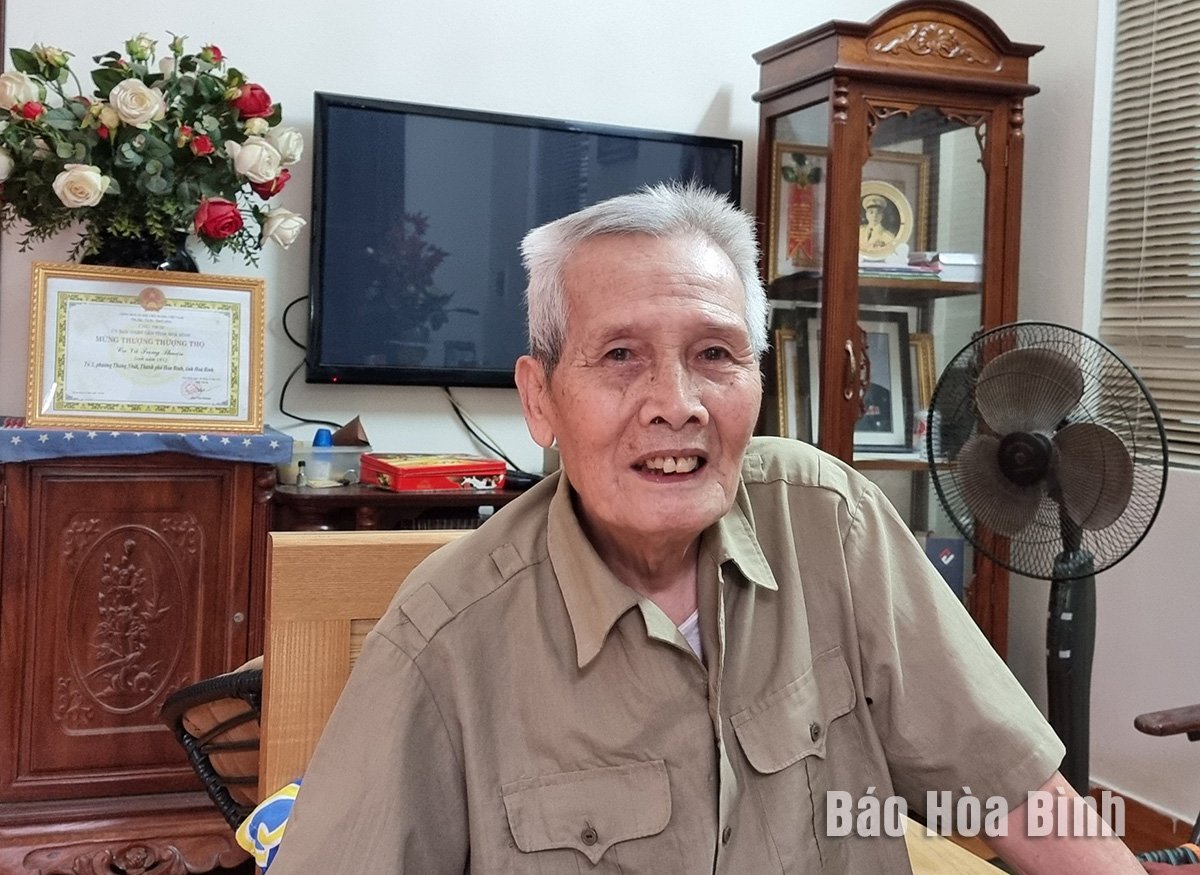
Meeting and chatting with him in a simple house on a small street corner of Thong Nhat ward, he said: I was born and raised on Hang Bac street, Hoan Kiem district ( Hanoi ). In 1946, President Ho Chi Minh issued a call for national resistance, when I was 14 years old, I ran away from home to join the army to join the resistance against the French colonialists to protect the capital. I was assigned and separated by orders from the superiors to form the 52nd Regiment, later called the Tay Tien Regiment to fight and operate in the enemy-occupied areas of Hoa Binh and the Northwestern provinces. After participating in activities and fighting with the soldiers of the Tay Tien Regiment, I was sent to study military medicine. In 1953, the enemy parachuted in and built a solid base in Dien Bien Phu, at that time the superiors concentrated human and material resources to establish a team to receive and provide frontline surgical treatment for soldiers wounded during the fighting in the Dien Bien Phu campaign. Although I was only 21 years old, because I received military medical training during my time in combat at the Tay Tien Regiment, I was assigned to be the Station Chief of the Wounded Soldier Treatment Station in Muong Phang...
Although the task was difficult, as a soldier who had been tempered through challenges and combat experiences, Station Chief Vu Trong Thuan and the station staff always completed the task of receiving, classifying, and treating wounded soldiers brought back from the front. Under extremely difficult and deprived conditions, after each battle, hundreds of wounded soldiers from the front were brought back to the station. With the will and spirit of soldiers fighting on the front lines, medic Vu Trong Thuan and his colleagues in the unit received, classified, organized treatment, and provided emergency care for seriously wounded soldiers right at the station.
Telling stories of the fiery time in the Dien Bien Phu battlefield, the veteran's voice seemed lost, choked with emotion when remembering the pain, loss, and sacrifice that his comrades had to endure. That was the brave face of the young soldier with the excruciating pain when he had to "amputate" his leg because of the lack of medicine on the battlefield; the mumbling calls for his mother in his nightmares because of the pain from the injuries all over his body of the young soldiers... But what made him feel troubled was probably the young soldier, only eighteen or twenty years old, who was brought to the Treatment Station under the immense forest canopy of Muong Phang, whose name he and the doctors at the station had not yet learned, only that he was a brave soldier in combat. He was seriously injured in the head during a battle at the Him Lam base.
He said: After being admitted and treated at the station, this brave soldier was in a coma for 3 consecutive days. On the 4th day, he suddenly woke up, we were extremely happy. He called us and had a wish to listen to the song "My Village" by musician Van Cao. Although he did not know it very well and knew that he could not sing well, medic Vu Trong Thuan and the staff at the station sang loudly in the middle of Muong Phang forest, in the howling sound of artillery shells from Muong Phang pouring fire down on the enemy in the Dien Bien basin. "My village is green with bamboo shade, each bell in the afternoon, the church bell rings/ Life is happy, the beloved countryside has areca shade, a boat, a river/ But that's it, where is my homeland, the day the French invaders came to destroy the village...". While the song was being sung with awkward, off-key, and stumbling notes, there was suddenly a choked sob, because that brave soldier had smiled with youthful satisfaction when the lyrics were not yet complete... He shared: That was the torment that followed me throughout my military career. Until now, every time I remember, I only wish I could sing the whole song for that soldier...
Saying goodbye to him one late afternoon, amidst the hustle and bustle of the city, I suddenly heard somewhere the song: "My village is green with bamboo shade, the sound of the evening bells, the sound of the church bells..." in an old, deep voice...
Source



![[Photo] Prime Minister Pham Minh Chinh chairs the first meeting of the Central Steering Committee on housing policy and real estate market](https://vphoto.vietnam.vn/thumb/1200x675/vietnam/resource/IMAGE/2025/9/22/c0f42b88c6284975b4bcfcf5b17656e7)















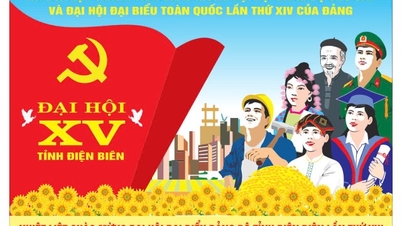




![[Photo] General Secretary To Lam presents the First Class Labor Medal to the Vietnam National Energy and Industry Group](https://vphoto.vietnam.vn/thumb/1200x675/vietnam/resource/IMAGE/2025/9/21/0ad2d50e1c274a55a3736500c5f262e5)





























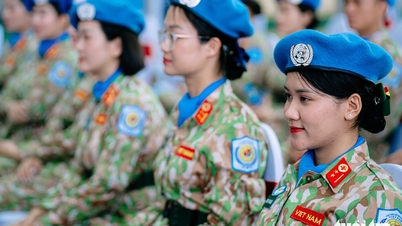



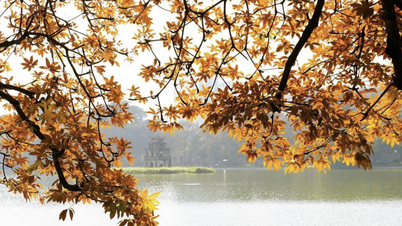




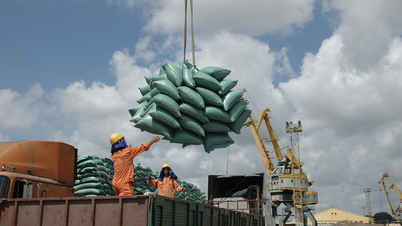























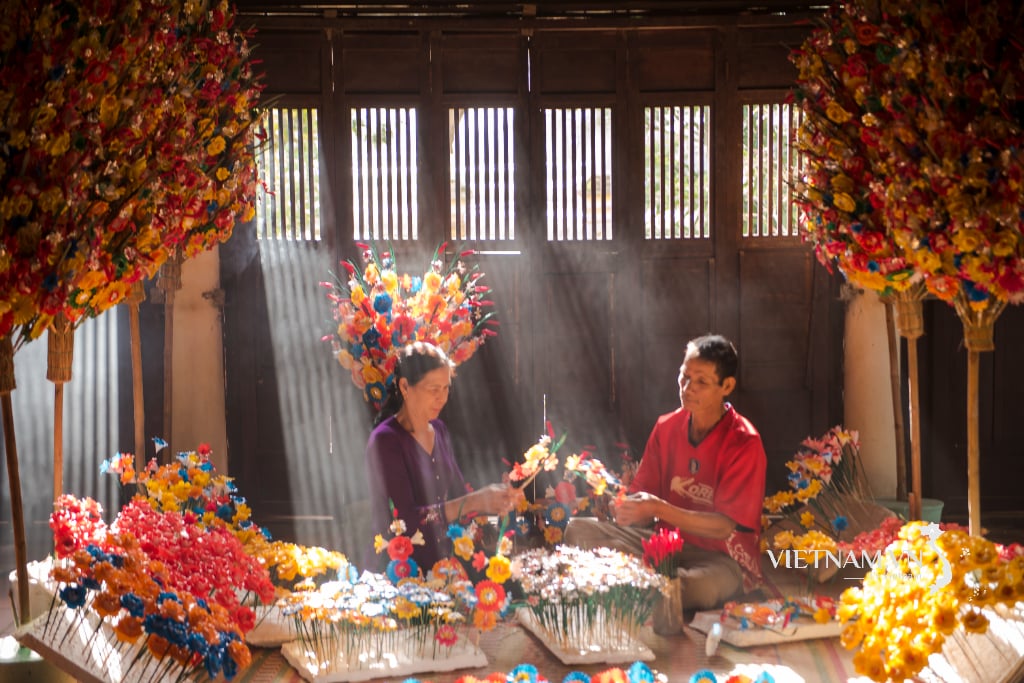
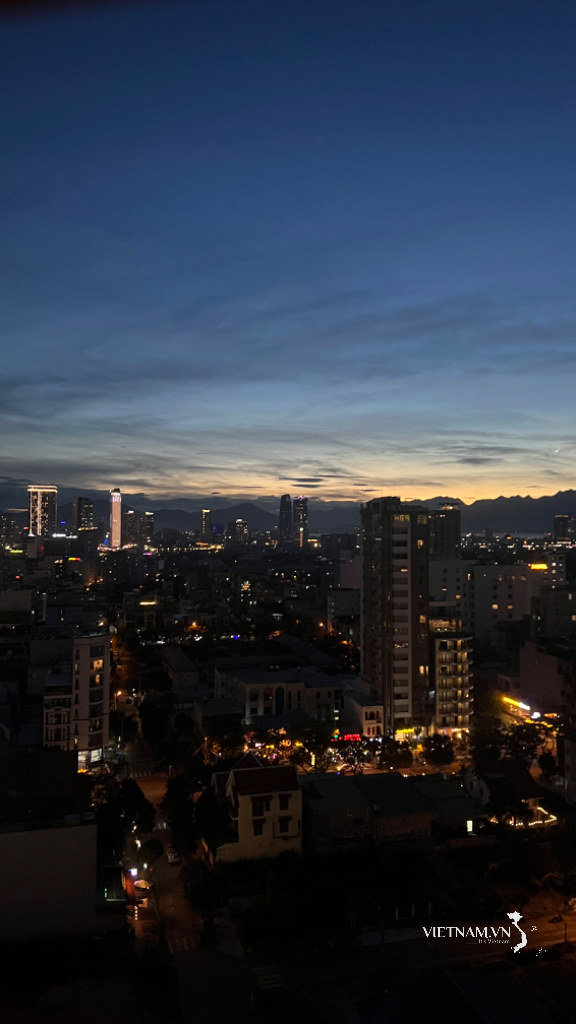
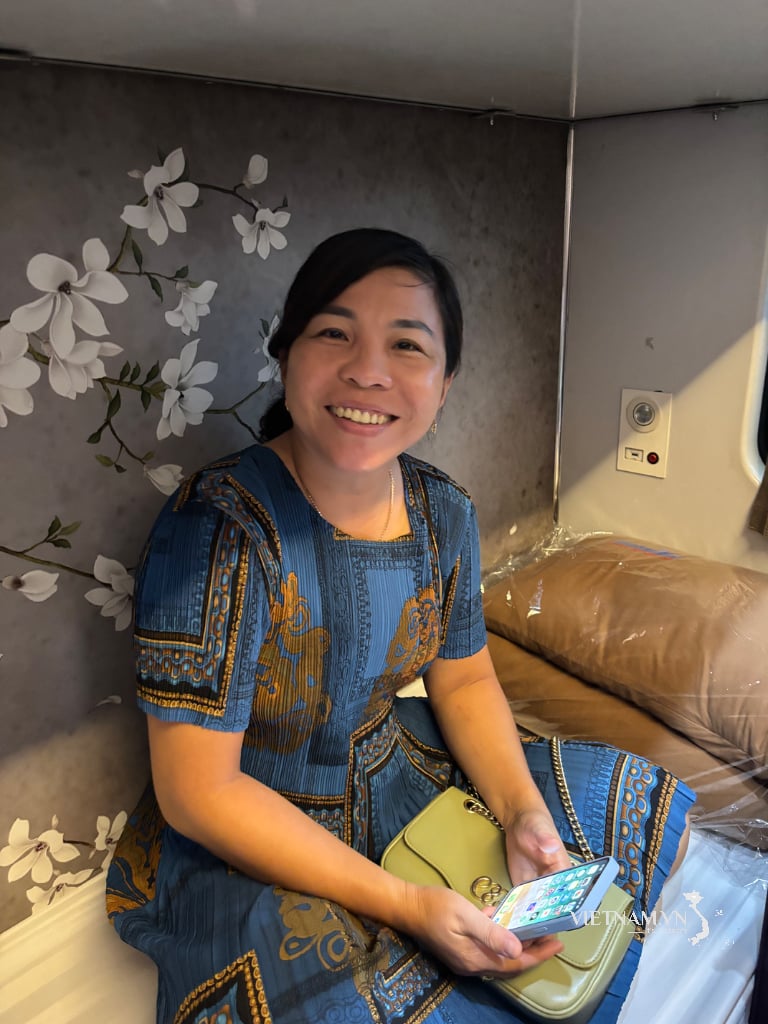

Comment (0)